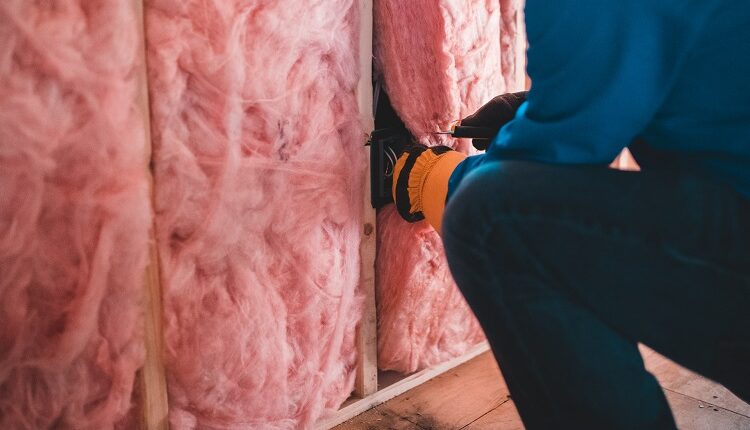Rockwool Insulation: What Should You Know About It?
Rockwool is a mineral-based material that can be used for insulation. It has a high thermal resistance and is often used in industrial situations where fireproofing is needed. Although rockwool insulation has been available for a while, it is not as well-known as other insulation types like fibreglass or cellulose. You may read further about rockwool insulation in this article.
What Is Rockwool Insulation?
Rockwool insulation is made of a type of mineral called rock wool, which consists of basalt and limestone. Rock wool is used in building construction and mechanical applications such as car engines and refrigerators. It is also used in the production of stone wool fiberboard, which can be used as an alternative to gypsum board for wall sheathing and roofing substrates.
Compared to other types of insulation, Rockwool insulation offers a number of benefits. It’s non-toxic, fire-resistant, and mould-resistant, making it a good choice for homes with children or pets. In comparison to other types of insulation, it also helps keep buildings warmer in the winter and cooler in the summer.
To suit your demands, contaminant rock wool insulation is offered in a variety of sizes and thicknesses. It can be cut to fit any size cavity and has excellent thermal resistance characteristics, making it suitable for a wide range of applications, from residential homes to industrial plants. The material is both economical and environmentally good because it can be recycled after use.
Benefits of Rockwool Insulation
Rockwool insulation has many benefits over other types of insulation materials because it does not contain any volatile organic compounds, which are harmful chemicals that can release fumes into your home when they burn off naturally over time. Some of the benefits of rockwool insulation may include the following:
Fire Resistant
One of the biggest benefits of using rockwool insulation is its fire resistance. This makes it the perfect option for usage in locations where there may be a fire risk, including close to furnaces or wood burners.
Lasts Longer
Cellulose and fibreglass are both prone to wear and tear over time, which means they need to be replaced every few years at best. Rockwool doesn’t deteriorate nearly as quickly as these other types of insulation do, so you won’t have to worry about needing new insulation anytime soon if you choose to install rockwool in your home or business.
Durability
The durability of rockwool insulation makes it ideal for use in high-moisture areas like crawl spaces or basements where wood framing might rot away over time due to exposure to excessive moisture levels found above ground level in these areas of the house or building structure itself; this would cause damage to any wooden framing as well as costly repairs for homeowners.
Easy to Install
Rockwool comes in large panels that can be cut with a utility knife or saw, making it easy to handle and install without professional help. The panels can also be installed on top of existing walls without having to remove the drywall first, which saves time and money since you won’t have to hire an electrician or contractor to help with the installation process.
Soundproof
It has excellent soundproofing properties. Rockwool insulation reduces noise transmission within walls and ceilings, making it ideal for use in homes and offices with children or employees who require a quiet space to work in. Additionally, rockwool insulation helps reduce noise from outside sources, such as traffic or barking dogs, so you can enjoy peace and quiet at home or at work.
Energy Efficient
Rockwool insulation keeps your home warm in the winter and cool in the summer by keeping heat inside the house during cold weather months and minimising heat loss during hot ones. It also helps keep sound out of your home, which means less noise pollution for you and your family members — especially if you live near busy roads or train tracks!
Cost of Rockwool Insulation
One of the most top choices for residential dwellings is rockwool insulation. It is simple to install and offers great value for the money. Basalt rock is used to create the natural mineral wool insulation known as rockwool.The cost of rockwool insulation depends on a lot of factors, including the size of your home, the type of installation, how much insulation you need, and where you live.
In addition, rock wool insulation comes in a variety of sizes, from small blocks that can be hand-cut to large rolls that are used for commercial and industrial buildings.The cost of rock wool insulation also varies on how much you need to buy and for what purpose you intend to use it. R-value is another factor that affects the price; an R-value of 20 means that your home will be more energy efficient than if it had an R-value of 10.
In Summary
When it comes to insulating your home, rockwool insulation is the best option on the market today. Rockwool insulation is environmentally friendly and sustainable. It’s made from 100% natural rock, which is mined all over the world. Moreover, rockwool insulation is non-toxic and safe for humans, animals, and plants. It can also be recycled at the end of its lifecycle, making it an environmentally friendly product.

